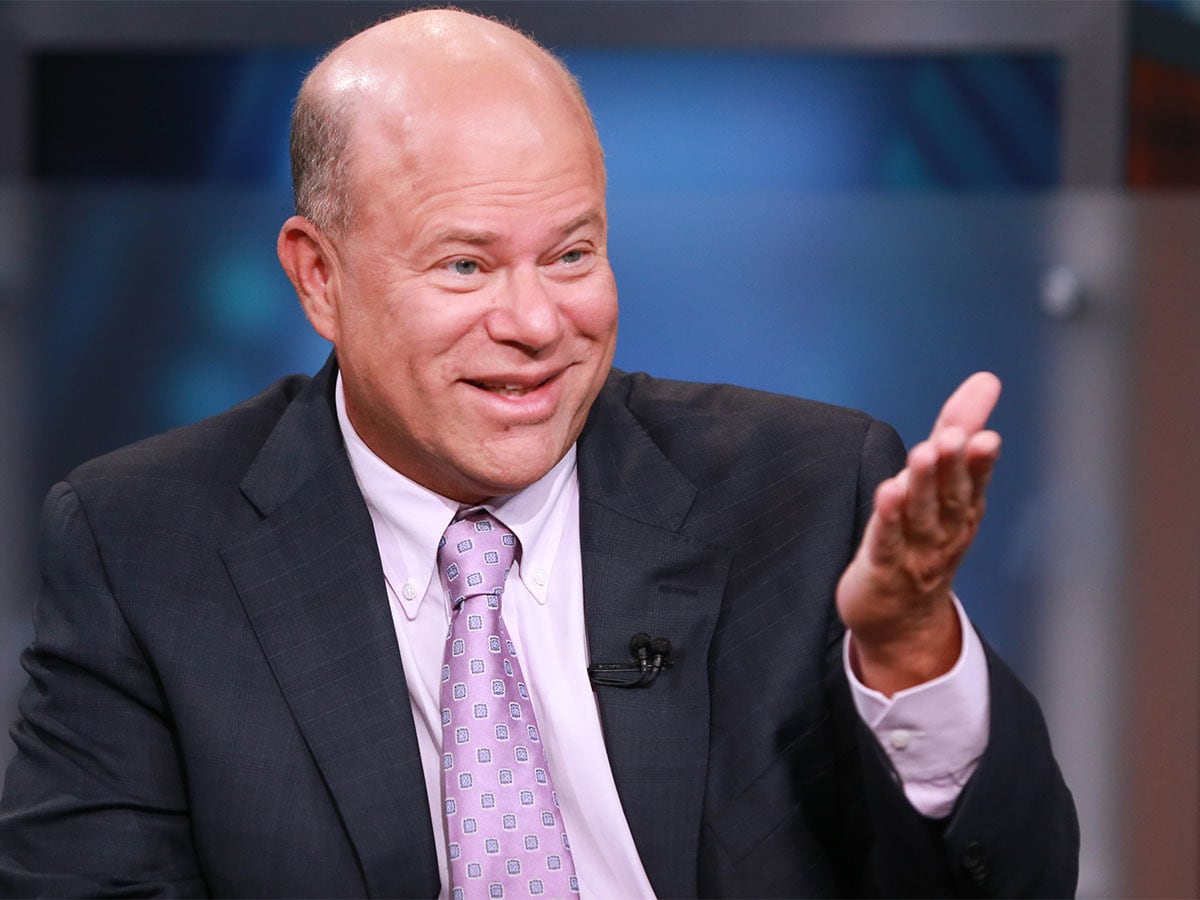Are fund managers like Ray Dalio and David Tepper practising caution, or are they trying to find opportunity in this market crisis?
As Bridgewater co-founder Ray Dalio recently wrote, the novel coronavirus is “one of those once in 100 years catastrophic events”. As COVID-19 has rocked the markets and sent prices plunging, Dalio and other fund managers have moved to minimise the risks where possible — but is there also room for opportunity in a volatile market?
Appaloosa Management founder, David Tepper, thinks so. He recently suggested there’s nothing wrong with “nibbling” as markets near their bottom — while also warning that there could still be a further 10–15% fall.
“It might be time to buy a little, and that means a little,” he told CNBC. Tepper revealed that he has been buying beaten-down technology-related names, healthcare shares and corporate debt.
“It might be time to buy a little, and that means a little” - Appaloosa Management founder, David Tepper
Fund managers are divided between practising caution in the face of volatility and capitalising on the opportunity — which method will work best remains to be seen, and whether Ray Dalio and David Tepper are proven right is yet to come to light.
How markets are faring
Global indices have been hit dramatically by the pandemic. For instance, the first quarter of 2020 has been the FTSE 100’s worst quarterly performance since 1987. It has fallen by around 25% in the past three months (1,870 points). On 1 April, the index fell by 4% in the space of a day.
“Very volatile markets are always stressful,” Austin Forey, portfolio manager of JPMorgan’s Emerging Markets Investment Trust in London, recently told the Association of Investment Companies (AIC).
“But we have some experience to draw on in terms of what not to do. In a big downturn, one thing to avoid is the temptation to run for cover after the crash has happened. It’s very easy to act pro-cyclically, but you should try to avoid that.”
“It’s very easy to act pro-cyclically, but you should try to avoid that” - Austin Forey, portfolio manager of JPMorgan’s Emerging Markets Investment Trust
The Dow Jones Industrial Average, meanwhile, registered its worst-ever quarter, while the S&P 500 is down by 22% so far this year. Economists have warned that the global economy could shrink by up to 1% this 2020. Pre-pandemic forecasts suggested growth of 2.5%.
Governments around the world have been working to circumvent the problem, offering up huge rescue funds in an attempt to lift share prices, with mixed results. While the FTSE, Germany’s Dax and France’s CAC 40 saw moderate growth, US indexes continued to struggle.
"Despite monetary and financial stimulus, we expect volatility of equities to remain elevated as long as the duration and impact of COVID-19 remain unknown, oil prices stay depressed and earnings visibility is murky " analysts for US Bank Wealth Management wrote last week.
What do the experts think?
There are still opportunities to be found in the market, despite the impact of COVID-19.
“Demand for services in many sectors is inelastic, cashflows are relatively predictable and dividend yields are attractive,” Ben Morton, head of global infrastructure at Cohen & Steers, tells Opto. “Over the long-term, listed infrastructure has been an effective portfolio diversifier, historically delivering equity-like returns that have been especially resilient in challenging economic environments.”
“Over the long-term, listed infrastructure has been an effective portfolio diversifier, historically delivering equity-like returns that have been especially resilient in challenging economic environments” - Ben Morton, head of global infrastructure at Cohen & Steers
He adds that investors should expect the near-term economic disruption caused by the spread of the pandemic to be significant, but the slowdown is not driven by the typical recession triggers —economic overheating and monetary policy tightening, for example.
“Many infrastructure companies have meaningfully strengthened balance sheets over the last decade and are largely in a better position to manage through a downturn,” Morton explains.
Cedric Vuignier, head of manager research and alternative investments at SYZ Asset Management, agrees. “There is less volatility because hedge funds have less leverage and their investor base is no longer the same,” he tells Opto. “Furthermore, banks have strengthened their balance sheets and hedge funds have diversified their counterparties.”
Repositioning portfolios
To give investors a shot at seeing their portfolios grow — or at least, to avoid them contracting — fund managers are reweighing their portfolios. Liam Thomas, CIO of the US Solar Fund, has been considering the impact of COVID-19 from a US perspective.
“Recent market volatility due to the coronavirus outbreak is likely to result in heightened investor demand for assets able to generate an attractive return, but with less correlation to the stock market or other asset classes,” he explains.
“Within the infrastructure sector, utility-scale solar is a good example of compelling long-term fundamentals,” he states.
“Not only can solar infrastructure provide an attractive yield, cashflows from utility-scale solar in the US are typically 100% contracted for 10 to 25 years. This reduces the correlation with other investments and results in lower exposure to market volatility, improving portfolio diversification and reducing risk.”
Morton has been tweaking his portfolio to hopefully reduce the impact of COVID-19.
“We have been de-risking our portfolios, reducing energy and transportation-related equities early on, in favour of less economically sensitive businesses. We have also selectively increased our weighting in utilities. We remain underweight European airports, based on the severe fundamental and financial impact of reduced air travel.”
“We have been de-risking our portfolios, reducing energy and transportation-related equities early on, in favour of less economically sensitive businesses. We have also selectively increased our weighting in utilities” - Ben Morton
Continue reading for FREE
- Includes free newsletter updates, unsubscribe anytime. Privacy policy





